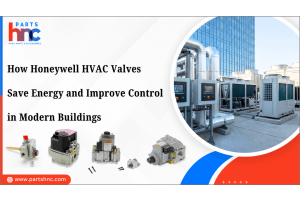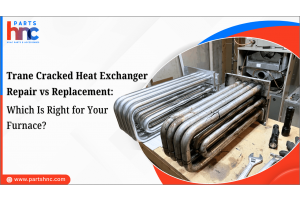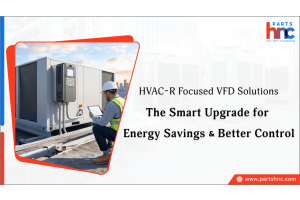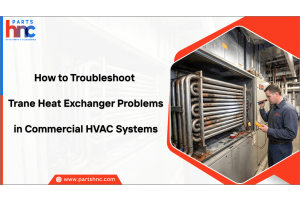The Future of Cooling: Inverter Technology in Advanced HVAC Air Conditioners
As global temperatures rise and energy efficiency becomes a priority, the HVAC (Heating, Ventilation, and Air Conditioning) industry is constantly evolving to meet these challenges. One of the most significant innovations shaping the future of air conditioning is inverter technology. This advanced cooling system offers superior energy savings, enhanced comfort, and environmental sustainability, making it a crucial part of modern air conditioners. In this article, we’ll explore how inverter technology works, its benefits, and how it’s revolutionizing HVAC systems.
Table of Contents
- What is Inverter Technology?
- How Does Inverter Technology Work?
- Benefits of Inverter Technology in HVAC Air Conditioners
- Inverter Technology vs. Traditional HVAC Systems
- The Role of Inverter Technology in Smart HVAC Systems
- The Future of Inverter Technology in HVAC
- Conclusion: The Future is Inverter Technology
- FAQs
What is Inverter Technology?
Inverter technology in air conditioners refers to a system where the compressor's speed is dynamically adjusted based on the cooling demand. Unlike traditional HVAC systems that operate on an "on-off" cycle, inverter air conditioners can continuously regulate their compressor speed to maintain the desired room temperature. This mechanism allows the air conditioner to run more efficiently, consuming less energy and offering a higher level of comfort.
The central element of inverter technology is the variable-speed compressor. Traditional air conditioners use a fixed-speed compressor that either operates at full capacity or switches off entirely. In contrast, inverter systems adjust the compressor speed in real time to deliver precise cooling as needed.
How Does Inverter Technology Work?
Inverter air conditioners are equipped with a variable frequency drive, which controls the speed of the motor running the compressor. When the air conditioner is turned on, the inverter rapidly cools or heats the space by running the compressor at a higher speed. Once the room reaches the desired temperature, the inverter adjusts the compressor’s speed to maintain the temperature, rather than turning it on and off like a traditional system.
This constant modulation leads to several benefits, including reduced energy consumption, longer compressor lifespan, and improved temperature control. By eliminating the need for frequent compressor stops and starts, inverter air conditioners also operate more quietly and smoothly.
Benefits of Inverter Technology in HVAC Air Conditioners
Here are the benefits of inverter technology in HVAC air conditioners:
1. Energy Efficiency
One of the most significant advantages of inverter technology is its energy efficiency. Traditional air conditioners consume a large amount of electricity due to the compressor constantly switching on and off. This process not only wastes energy but also puts stress on the system, leading to higher electricity bills.
In contrast, inverter air conditioners regulate the compressor's speed according to the cooling or heating demand. When less cooling is needed, the compressor runs at a lower speed, reducing power consumption. Studies have shown that inverter air conditioners can save up to 30-50% more energy compared to non-inverter models.
2. Enhanced Comfort
Traditional air conditioners tend to cause temperature fluctuations due to their on-off operation. This can lead to discomfort, as the room may feel too cold when the compressor is running at full capacity or too warm when it shuts off.
Inverter technology eliminates these temperature swings by maintaining a constant temperature. Once the desired cooling level is reached, the system operates at a lower, more efficient speed, ensuring a consistent and comfortable indoor environment. This precise temperature control is especially beneficial in areas with extreme weather conditions.
3. Quieter Operation
The on-off cycle of conventional air conditioners can generate considerable noise, as the compressor starts and stops frequently. This noise can be particularly bothersome in quiet environments such as bedrooms or offices.
Inverter air conditioners, however, operate at a lower speed for most of the time, resulting in significantly reduced noise levels. The absence of abrupt compressor starts and stops ensures a smoother and quieter operation, making inverter systems ideal for noise-sensitive spaces.
4. Environmental Sustainability
Energy efficiency is not only beneficial for reducing electricity costs but also for minimizing the environmental impact. HVAC systems contribute significantly to global carbon emissions, especially in regions with high cooling demands. Inverter technology plays a critical role in reducing these emissions by optimizing energy use.
Moreover, many inverter air conditioners use eco-friendly refrigerants such as R-32, which have a lower Global Warming Potential (GWP) compared to older refrigerants like R-410A. This further enhances the environmental sustainability of inverter systems, making them a greener choice for homeowners and businesses.
5. Longer Lifespan
Since inverter air conditioners avoid the frequent on-off cycling of conventional units, they experience less wear and tear on the compressor. This results in a longer operational lifespan for the system. Additionally, the steady operation of inverter systems reduces the chances of overheating or electrical surges, further prolonging the life of the air conditioner.
Looking to upgrade your HVAC system with the latest inverter technology? At PartsHnC, we provide high-quality HVAC parts to enhance performance and energy efficiency. From compressors to thermostats and fan motors, we’ve got everything you need to keep your system running smoothly.
Inverter Technology vs. Traditional HVAC Systems
The key difference between inverter and non-inverter air conditioners lies in the way the compressor operates. While traditional systems run the compressor at full capacity until the desired temperature is reached and then shut it off, inverter systems modulate the compressor’s speed to continuously maintain the desired temperature.
Energy Consumption Comparison
Traditional air conditioners consume a fixed amount of energy during each on-off cycle, which can lead to inefficient energy use, particularly in climates where air conditioners need to run for extended periods. Inverter systems, on the other hand, adjust energy consumption based on the required cooling or heating load, making them far more energy-efficient.
Performance and Comfort
Inverter air conditioners offer superior comfort by maintaining a consistent room temperature without the fluctuations that occur with traditional units. The ability to precisely control temperature also ensures faster cooling and heating, making inverter systems more responsive to changing climate conditions.
Maintenance and Durability
While traditional HVAC systems may require more frequent maintenance due to the constant stopping and starting of the compressor, inverter air conditioners tend to have longer intervals between maintenance checks. The continuous operation at lower speeds reduces strain on the compressor, leading to less frequent breakdowns and repairs.
The Role of Inverter Technology in Smart HVAC Systems
As smart home technology continues to evolve, inverter air conditioners are becoming integral components of advanced HVAC systems. Smart HVAC systems leverage sensors, AI, and IoT (Internet of Things) technology to optimize performance and improve energy efficiency. Inverter technology enhances these systems by allowing for more precise control over heating and cooling, leading to even greater energy savings and comfort.
In smart HVAC systems, inverter air conditioners can be programmed to adjust temperature settings automatically based on factors like room occupancy, weather conditions, or even time of day. This level of automation not only improves convenience but also maximizes energy efficiency by preventing unnecessary cooling or heating.
The Future of Inverter Technology in HVAC
The adoption of inverter technology in HVAC systems is expected to grow rapidly in the coming years, driven by increasing demand for energy-efficient and environmentally friendly solutions. As governments and organizations worldwide implement stricter energy efficiency regulations, the HVAC industry will continue to innovate, with inverter technology playing a central role.
Innovations on the Horizon
The future of inverter technology in HVAC will likely involve further integration with smart home systems and artificial intelligence. AI-driven HVAC systems could learn user preferences and adjust the air conditioning settings accordingly, further enhancing efficiency and comfort.
In addition, advancements in materials and design could lead to even more efficient inverter compressors, reducing energy consumption and carbon emissions even further. Manufacturers are also likely to continue developing air conditioners that use eco-friendly refrigerants, aligning with global efforts to combat climate change.
Conclusion: The Future is Inverter Technology
Inverter technology is a game-changer for the HVAC industry, offering a perfect balance between energy efficiency, comfort, and sustainability. Its ability to adjust the compressor speed based on real-time cooling or heating demand makes it a superior option compared to traditional air conditioners. As the world moves toward more energy-conscious living, inverter air conditioners will undoubtedly play a significant role in shaping the future of cooling.
With the continuous evolution of smart technology, AI integration, and advancements in energy efficiency, the future of HVAC systems will revolve around inverter technology, making homes and businesses more comfortable, cost-effective, and environmentally friendly. Investing in inverter air conditioners today means embracing a future where cooling is smarter, greener, and more efficient than ever before.
FAQs
Can inverter air conditioners work in extreme weather conditions?
Yes, inverter air conditioners can efficiently operate in extremely hot or cold climates, as the variable-speed compressor adapts to maintain consistent cooling or heating.
Do inverter air conditioners require more maintenance than traditional units?
No, inverter air conditioners typically require the same level of maintenance as traditional systems, but their smoother operation can reduce wear and tear, extending component life.
Are inverter air conditioners suitable for large commercial spaces?
Yes, inverter technology is scalable and can be used in large commercial spaces, providing energy-efficient temperature control across wide areas.
How quickly do inverter air conditioners cool a room?
Inverter air conditioners cool rooms faster than traditional units, as the compressor initially runs at a higher speed to reach the desired temperature quickly.
Can an inverter air conditioner help with humidity control?
Yes, inverter air conditioners offer better humidity control since they continuously adjust their compressor speed, providing consistent dehumidification along with temperature regulation.
 Loyalty Program
Loyalty Program













